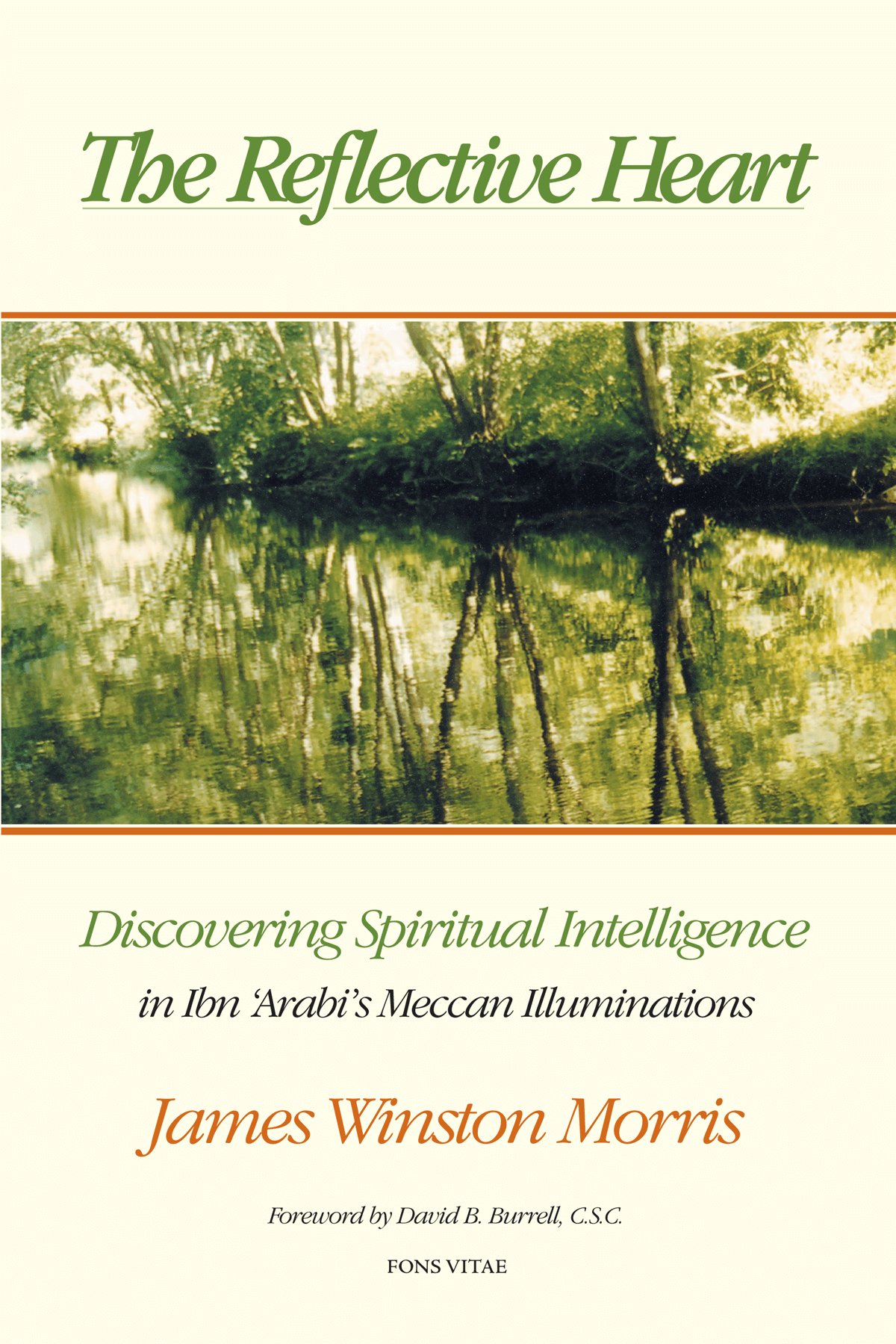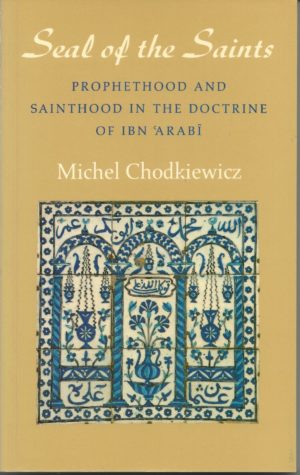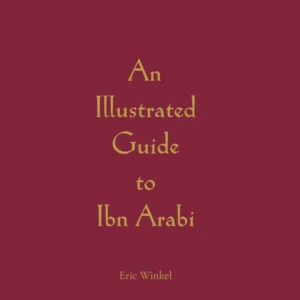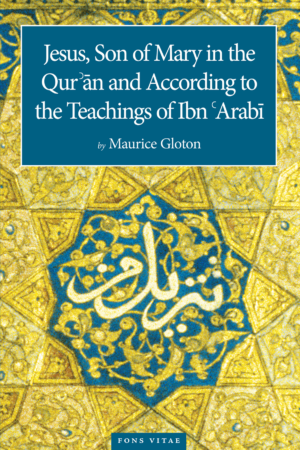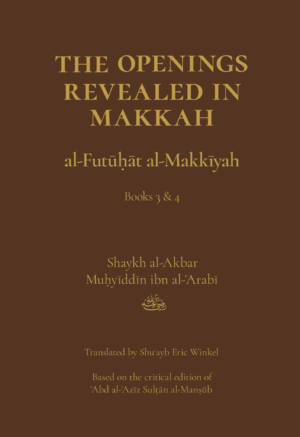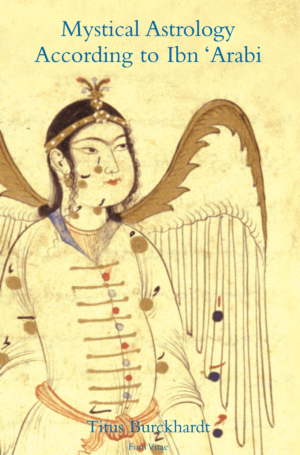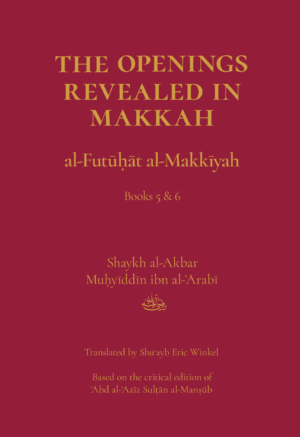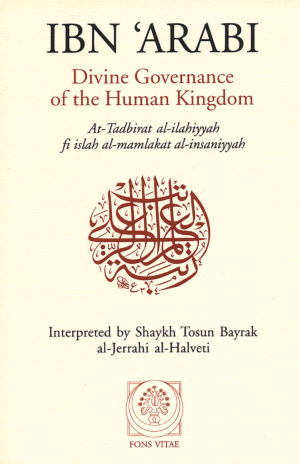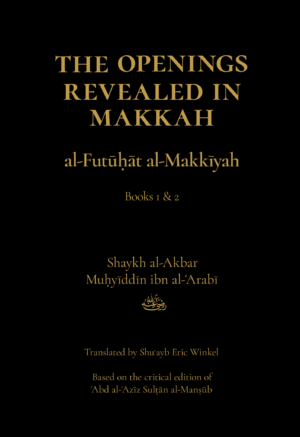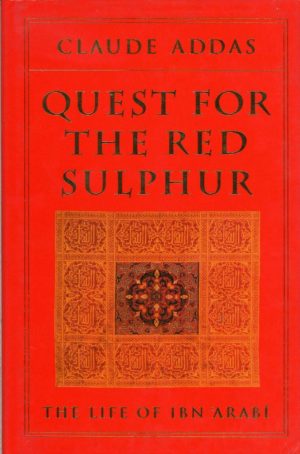For centuries Ibn ‘Arabi has been considered the “Greatest Master” of Islamic spiritual teaching, but Western readers have only recently had access to his greatest writings. This introduction to Ibn ‘Arabi’s Meccan Illuminations highlights the mysticism and realization of Sufi spiritual life, providing an intellectually penetrating look without requiring specialized knowledge.
The development of several key themes and modes of reflection in Ibn ‘Arabi’s spiritual teachings are explored as are the gradually unfolding meanings that distinguish this important classical text of Sufi practice.
The Reflective Heart is about the ways we gradually discover the deeper significance of all the familiar elements of our everyday life-not just those memorable moments we ordinarily view as “spiritual”.
Spiritual intelligence-the illuminating interplay of our uniquely individual experience, reflection, and practice-is at the heart of every world religious tradition, and Ibn ‘Arabi is renowned for his ability to communicate the unfolding dimensions of this fundamental human task. His Meccan Illuminations provide a powerful spiritual mirror for each reader’s own experiences, while highlighting those larger perspectives that ultimately give meaning and direction to our life.
———
The Reflective Heart: Discovering Spiritual Intelligence in Ibn ‘Arabi’s Meccan Illuminations
By James Winston Morris, Foreword by David B. Burrell Louisville, KY: Fons Vitae, 2005, PP. 420.
Reviewed by Samuel Bendeck Sotillos READ PDF
The heavens and the earth cannot contain Me,
but the heart of my believing servant does contain Me.
– Prophet Muhammad ((ḥadīth qudsī)
Perhaps unlike any prior era, the present day is marked by the pervasive disintegration and absence of spiritual literacy. All religions are in fundamental agreement that it is the hardening or corrosion of the faculty of the heart that is the source of spiritual malaise. The heart that the religions and their mystical traditions speak of is not the physical heart that can be felt within our breast, but a transpersonal faculty where the Divine meets the human, and it is often regarded as the seat of consciousness itself.
Tradition locates the seat of consciousness in the heart rather than the human mind. However, with the eclipse of the cardial Intellect all other faculties have become fragmented and myopic. According to a well‑known ḥadīth, “Hearts rust like iron, and their polishing is through remembrance of God (dhikr Allāh) and recitation of the Qur’ān.”
It is through the awakening of the Intellect (al-‘aql) that the noetic faculty of the “eye of the heart” (‘ayn al-qalb) is enlivened, and it is through spiritual practice that we can learn to truly see. The Arabic term ‘aql is used to denote both reason and intellect, yet the distinction and inter‑ relation between them is always recognized: reason is intelligence of the horizontal order, intellect of the vertical. The Qur’ān states: “For it is not the eyes that are blind, but the hearts in the breasts which are blind!” (22:46). The Spirit (ar-Rūḥ) is embodied in the heart (al-qalb) and the soul (nafs) of the human being (al-insān) and it is when the Intellect (al-‘aql) is restored in the heart that our primordial nature (fiṭrah) can be fully realized at the highest level, known as the Universal or Perfect Man (al-insān al-kāmil). So, the Prophet of Islam said, “My eyes sleep, but my heart is awake.” What is “awake” is the inward eye of the heart, which sees the fullness of reality as it truly is. It is through active participation in and commitment to one of the religious traditions of the world and its integral “science of the soul,” which within the Islamic tradition is known as ‘ilm al-nafs, that the wayfarer can make a return to the Divine.
This work by James Winston Morris (b. 1949) is an introduction to Ibn ‘Arabī’s (1165–1240), Meccan Illuminations (al-Futūḥāt al-Makkiyya), consisting of numerous chapters originally inspired by lectures and previously published articles on Ibn ‘Arabī, the Spanish-born mystic known as “the Greatest Master” (al-Shaykh al-Akbar).The book highlights the wayfarer’s journey on the spiritual path as informed by Islamic spirituality or Sufism (taṣawwuf), providing keys for opening the human heart by way of a universal metaphysics of the Path. A hallmark of the work is the conviction that the sacred is to be found in everyday life, in the here and now of this moment, as in the presence of each inbreath and outbreath taken, emphasizing that the Divine is never absent from the wayfarer’s return to God.
The human being’s gradual forgetfulness of the Divine, being none other than the loss of the sense of the sacred, has caused the veiling of the heart, leading to myriad individual and collective problems. For example, in our interpersonal relationships it is easier to find fault in others without first looking into our own hearts for the source of the problem. This is indicated in the following verses of the Qur’ān: “God knows what is in your hearts” (33:51); similarly, “He knew what was in their [the believers’] hearts” (48:18).
The heart’s distinguishing activity of “reflection” as it relates to spiritual intelligence requires both the wayfarer’s ceaseless “remembrance of God” (dhikr Allāh) and the undertaking of the polishing the mirror of the heart by trials and lessons in order to ultimately become a true and effective reflection of each of the divine qualities of the “Most Beautiful Names” (al-asmā’ al-ḥusnā). The Qur’ān makes this clear: “Verily in the remembrance of God do hearts find rest” (12:28).
Morris distills spiritual intelligence into three elements: experience, reflection, and right practice. He adds that it is a “universal process [that] includes and engages every aspect of our lives” (p. 1). Spiritual intelligence requires a transpersonal or vertical dimension that gives it depth and completeness. While the human beings are said to be vastly far from God, they are at the same time intimately close. The Divine is both transcendent and immanent, a reality affirmed in all of the sapiential traditions and reflected in the Qur’ān: “There is nothing like Him” (42:11); however, “We are closer to him than his jugular vein” (50:16) and “We are closer to him than you all are, yet you all do not see!” (56:85). In the Divine, both transcendence and immanence coexist simultaneously without contradiction, just as their distinct degrees coexist in reality, and modes of knowing depending on the understanding of the human individual. Within both the human being and the cosmos there are in fact multiple degrees of being or reality. Ibn ‘Arabī writes, “there exists a spiritual connection extending from the human being to every thing in the cosmos” (p. 287). The Qur’ān also affirms this implicitly in the following verse: “We shall show them Our signs upon the horizons and within themselves, until it be manifest unto them that it is the truth” (41:53).
The human being is always contained in the Divine, whether one is aware of this fact or not. From one’s birth into this world to one’s transition from it, everything begins and ends with God. Hence the Qur’ānic verses “To Him you all are returned” (2:28) and “All things return to God” (2:210). Ibn ‘Arabī speaks about spiritual guidance and grace in each human soul’s journeying toward the Divine: “Every soul desires the Pilgrimage to God, which is seeing and reflecting on the inner awareness of God that comes from direct witnessing (shuhūd)” (p. 28). He elaborates on this theme, illuminating how the pursuit of the Divine is unavoidable, even for those who would deny God’s existence:
All of these Signs/verses (āyāt) and their like indicate that the journey of (every) human being is (only) to God … since God is the Goal of every traveler. (This is so) whether he be journeying away from God, or through the existence of his own soul, or from one created being to another [i.e., through all the more normal states of most people], or in and through God, or in the Names of his Lord. For the Truly Real (al-Haqq) is the Goal of all the paths, whether or not those paths are ones that are (intentionally) sought out or not! (p. 31)
He adds, “This is the journey of the one who has abandoned travelling, even when he is destined to journey!” This is to say that to seek the Divine is itself an obstacle and therefore designates distance from the Divine. Paradoxically, to give up seeking requires seeking itself. Each human being has a unique disposition toward the Divine that uniquely defines their specific soul’s journey and return to the God.
The act of perception and experience is itself metaphysical and a theophany, as the Qur’ān reminds us: “Surely there is a Reminder in that for whoever has a heart, or listens attentively, while he is witnessing…” (50:37). Morris explains, “That transformation of everyday experience into realized theophany, whenever and however it occurs, is always a mysterious divine ‘opening’ (fath) or illumination” (p. 47).
It is within the human heart that true balance (al-mīzān) can be found, yet the heart needs to be purified in order for this faculty to receptive to the Divine. Ibn ‘Arabī explains,
Now spiritual purification (tahārat al-bātin)—which is (purification of) the heart—is through liberating ourselves (from all attachments other than God), in order to seek (His) friendship. And there is no (true) friendship and closeness with God except through freeing yourself from the creatures, insofar as you used to consider them (only) in light of their relation to yourself (to your ego or nafs) and not through God (and the realization of His aims in their regard). (p. 88)
He continues by way of making a comparison with the wayfarer who is properly prepared to visit the “House (al-bayt) of God”:
So consider the one who comes to circumambulate (the Kaaba), when he has turned to his heart after going around (the House). If he finds an increase in his awareness of his Lord and a “clear indication” (from God) that he did not have before, then he knows from that that he has properly carried out his purification for entering Mecca.
But if he finds none of that (in his heart), then he knows that he has failed to purify himself, did not come to his Lord, and so did not (truly) go around His House. For it is impossible that anyone should come to stay with a noble and wealthy host, entering into his house, and yet not experience his hospitality!
… So if such a person comes close (to God’s House), he comes close to the rocks, not to the Essence (or the Source: al-‘ayn)—May God place us among the possessors of hearts, the people of God and those close to Him! (p. 89)
It is through the Divine Names that the human being can connect with God, and it is through them that we can take on God’s qualities and realize the Real. Regarding this realization, Ibn ‘Arabī points out that “There is no dispute among the people of immediate spiritual experience” (p. 97). However, a cautionary note needs to be added with regard to spiritual experiences: when understood in isolation or as an end in themselves, they can become a dangerous pitfall for the wayfarer. Ultimately what matters in God’s eyes is the heart, as Ibn ‘Arabī expresses it: “For God sees nothing of the human being (al-insān) but the heart. So it is incumbent on the servant that his heart should always and continually be pure, because it is the place God sees in him” (p. 99).
The heart of the human being is considered within Islamic spirituality as the true inner “face.” For this reason, as Ibn ‘Arabī writes, it needs to be purified: “Therefore the human being should pay close attention to his actions and inactions, both outwardly and inwardly, and should attentively observe the influences of his Lord in his heart” (p. 130). It is the attachment to things other than the Divine that has led to the hardening or corrosion of the heart. The Divine is in fact always manifesting itself, yet the human being finds it difficult to realize that the Divine is veiling Itself from us. From the metaphysical perspective, to exist as it is ordinarily perceived is to not exist, and to not exist is to truly exist in the Divine. Ibn ‘Arabī writes,
And this is the station in which the states of the spiritual voyagers are dissolved and the stations of the spiritual travelers disappear, until [in the words of a famous Sufi saying] “The one who was not vanishes, and He Who always is remains.” (For them) there is no “other” to affirm His Self‑revealing (zuhūr), and no darkness remains with His Light. [So according to the Prophet’s famous explanation of insān]: “…If you are not, then you do see Him!” Recognize the true reality of “if you are not,” and (then) you yourself are the (divine existentiating Command) “Be!” (p. 134)
Ibn ‘Arabī makes the following qualification: “Thus no one knows what is their rank with God, because absolutely all of their actions are for the sake of God, not for their own sake, since they prefer God to what their (bodily and psychic) nature demands” (p. 230).
For Ibn ‘Arabī the transitory world (dunyā) is real insofar as it exists, but illusory insofar as it is temporal and limited, symbolizing the here‑ after and what is to come in the next world:
Whoever wants to know the inner reality of what we have alluded to concerning this question [i.e., of the deeper reasons for death, suffering, ignorance and wrongdoing in this transient world] should reflect on the Image/Imagination of the screen and the forms (of this cosmic shadow‑Play) … for those who truly know, they reflect and see more deeply: so they realize that God has only established all this as a symbol/likeness (mathal) (p. 251).
In this shadow‑theater each human being is simultaneously both an actor and the audience. The following Qur’ānic passage speaks to this existential terrestrial situation: “Blessed be He … Who created death and life in order to test you all, which of you is best/most beautiful in action” (68:1–2).To not take one’s religion seriously in this lifetime is to be deluded by the temporal world and to misunderstand its symbolic nature and the very purpose of the human condition. Ibn ‘Arabī teaches that “The Purpose (of our earthly existence) is nothing but the rank of human Perfection in Servanthood (‘ubūdiyya)” (p. 286).This is made possible through the integral transformation as conveyed by the well‑known words of the Prophet of Islam: “Die before ye die” (mūtū qabla an tamūtū). Ibn ‘Arabī comments on this process: “our meeting with God can only be through death, and because we knew the inner reality of death, we sought to bring it about sooner, in the life of this world” (p. 290).
The necessity and role of transcendent knowledge to distinguish the illusory from the Real. It is paramount for the spiritual path, as Ibn ‘Arabī notes: “whenever God reveals this knowledge to one of the people of this world (already) in this world, that person has received in advance the blissful repose of eternity” (p. 242), for the “heart is not gladdened except by what it knows for sure to be real” (p. 261). In an esoteric riddle‑like fashion, Ibn ‘Arabī asserts: “The Real is the Real, while the path is the path!” (p. 287) He adds an important point about the soul’s universal journeying back to the Divine: “the vision (of God) on the Day of the Visit is according to (each individual’s) beliefs in this world” (p. 313).
The human being starts out in life with the fundamental dilemma that one sees everything through the lens of duality, when in fact this seeming separateness is none other than an illusory superimposition of the temporal world as a veil over the next world. Wayfarers who learn to see this in their lifetime, and to apply it, will benefit immeasurably. While no map can ever substitute for the actual terrain or the journey, Morris does a remarkable job of articulating the complexity and intricacies of the wayfarers’ quest and how each human being can awaken their spiritual intelligence and reintegrate it within the human heart as instructed by Ibn ‘Arabī. This is an important spiritual treatise conveying keys for a true and integral understanding of what religion is, but provides also a complete “science of the soul” (‘ilm al-nafs) within the Islamic tradition. As each human being longs to see the Beloved and to return to the House of the Beloved—under whatever name it be given—the ultimate goal of every pilgrimage is “the heart of my believing servant.” Ibn ‘Arabī’s universal and timeless truth of the “religion of the heart”1 conveys what is at the esoteric root of all of the religions: to become fully human is to realize the significance of the Sufi saying “The heart of the person of faith is the Throne of the All‑Merciful” (qalb al-mu’min ‘arsh al-Rah-mān) (p. 52).
1 “My heart has become capable of every form: it is a pasture for gazelles and a convent for Christian monks, And a temple for idols and the pilgrim’s Ka’ba, and the tables of the Tora and the book of the Koran. I follow the religion of Love: whatever way Love’s camels take, that is my religion and my faith.” (Ibn ‘Arabī, quoted in The Tarjumān al-Ashwāq: A Collection of Mystical Odes by Muḥyi’ddīn ibn al-‘Arabī, trans. Reynold A. Nicholson [London, UK: Royal Asiatic Society, 1911], p. 67).
